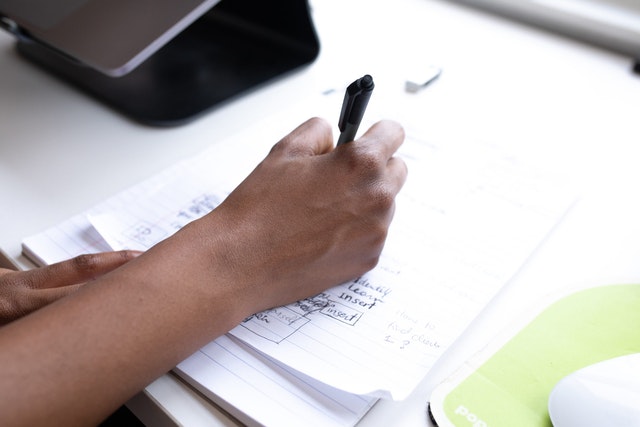
I feel like people think I have come here to take things, but I don’t even have basic human rights
I rang Filly to let him know about the opportunity of writing an article for Economy and he immediately launched into a flurry of what he would write about. He is lively and has a lot to say! We often laugh at the cultural differences between the UK and his home in Eritrea, and we spend time talking about what life is like here for him.
As Filly is still learning English, I suggested he writes in Tigrinya, and we can translate it for him. Tigrinya is one of the various languages that Google will not translate, so we often work with interpreters to ease understanding.
Filly sent me a short text in Tigrinya and I wondered if he had understood my request for an article. It turned out that Filly had written a poem. We laughed about our miscommunication, at which he exclaimed: “it’s much harder to write a poem, why didn’t you tell me!?”
Filly’s Poem
To those who are stressed about why one is not stressed, while one is trying to go over everything to let go because it is heavy on the shoulders.
Stepping in the light of hope, some are there to poke you trying to remind you of the past and take the hope from you.
Their calmness is disturbing, and yet they keep asking how I managed through? And they say that if they were in my place they would have gone crazy.
They say that to my face bravely without being shy. One must stay alert, there are a lot of them who are stressed by one not being stressed.

This incredible poem led to a conversation about Filly’s current situation, mental health, and his interaction with social services.
My name is Filly, I currently live in Croydon, I think it is a good place and I like it here. I want to be a good person, but I find that living in the UK is so hard. I want to learn more, I would like to do IT at college so I can go on to be an engineer.
I am unhappy with social services, when I arrived in this country they gave me an age assessment because they didn’t want to believe that I was a child. I was 17 when I arrived. I was homeless for two months, in southwest London, until I was helped by a charity worker. The community treated me very badly.
At some point I was housed with other asylum seekers. I am still living there. I am unhappy with my living circumstances, the house is very dirty, my bed is broken and some of the windows are broken and boarded up. I have been very stressed trying to change this, I want to be able to live in a place that feels safe.
I have now had status as an asylum seeker for 1 year and even though I want to work, I have been told that I would then not be entitled to any housing. This creates an issue as I want to have purpose and a job to have money but if I make money my chance of better housing could be taken away from me.
I have been asking my social worker to help me move to a better house for the last year. I am a good student and have many certificates from college. I am clean and take care of my space.
I feel like my social worker doesn’t understand me, she is always talking to me about rules, and I don’t understand. I tried very hard to come to this country to work, but I can’t even begin to think about working. I feel like many people see me and they think I am lazy and they don’t want to work. I am not British and my culture is different. Often I am loud or direct with people and it seems to upset them. I am not sure why! Social services seems to never do anything to help me, whenever I call them they just say “ok, ok” when I ask them to help me with my housing. This causes me a lot of stress.
I often feel like people smile at me and try to joke and laugh with me but I am unhappy and they don’t understand the hardship of my life. Living as a refugee here in London is very hard and I feel like people think I have come here to take things, but I don’t even have the basic human rights.
Filly’s story is unfortunately incredibly familiar to us at Revoke. We spoke about what happens to a person's mental health when their needs are not fulfilled, and Filly seems to spend a lot of time trying not to be stressed about his housing and work situation. Current legislation requires minors without IDs or passports to receive an age assessment when they arrive. Frequent accusations of lying by officials creates mistrust of those in power, including local authorities, and causes wider issues around trust.
When asked what changes he would like to his circumstances, Filly responded that he wanted a nicer, safer place to live, and simply to be able to enjoy his life. Seemingly, the system for receiving Universal Credit and housing benefits does not account for those with no support, on low income. Individuals like Filly are therefore forced into a situation where working will have a negative impact on his benefits. This also influences the local community’s view of him, adding to xenophobic and racist attitudes towards the migrant crisis, perpetuating the cycle shown in Filly’s understanding of how he is perceived.

About the authors
This article was co-written by Filly, a young asylum seeker, and Revoke, a grassroots organisation advocating for the rights and welfare of underserved young people, particularly unaccompanied refugee minors, asylum seekers and those in the care system. In opposition to punitive services that leave young people vulnerable, Revoke aims to give them agency by engaging with culture, society, and politics, and co-designing activities that restore dignity and give a sense of fulfillment.
Revoke recently worked with four young asylum seekers to write articles about their experiences of living in the UK, the dominant Western economic system, and its wider repercussions on African countries. These were written in collaboration with Hannah Theodorou, Safeguarding Lead at Revoke, who also provides context for each article.
This article is part of Economy's Voices of the Economy series. The project brings together the economic experiences and opinions of people from a range of different backgrounds and showcases voices which are not heard as often when we talk about the economy. To find out more and share your own story, click here.



